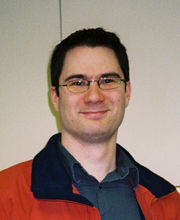
Associate Professor of Anthropology
Hart Hall, Room 210
BA, Trinity College, Hartford CT
MA, University of Florida, Gainesville FL
PhD, Brown University, Providence RI
Michael Zimmerman is an archaeologist, with a PhD from the Joukowsky Institute for Archaeology and the Ancient World at Brown University, and a member of the Archaeogaming Collective, Archaeological Institute of America, American Society for Overseas Research, Northeastern Anthropological Association, Council for Northeast Historical Archaeology the Save Ancient Studies Alliance, and the Society of Historical Archaeology. He also holds an MA in Classical Languages from the University of Florida. He has worked extensively on archaeological surveys and excavations in public archaeology in Massachusetts, as well as in Israel, Jordan, and Georgia, where he is a co-principal investigator for the NSF-funded Shiraki International Multidisciplinary Research project. He also serves on the Executive Board of the Northeastern Anthropological Association, the Curation and Collections Committee of the Society for Historical Archaeology, as secretary of the Undergraduate Curriculum Committee, and on the Sustainability and Migration Studies advisory boards. His other work and research interests include archaeogaming and virtual technology in pedagogical contexts, antiquities trafficking, cultural heritage law and public policy, and collections-based research. As director of the department of Anthropology’s public archaeology concentration, he teaches introductory and upper level archaeology courses, Middle Eastern cultures, and myth and folklore courses.
Area of Expertise
The archaeology of Kingston, Massachusetts; archaeogaming, with a focus on archaeological pedagogy; collections-based research; NAGPRA and collaborative practices.